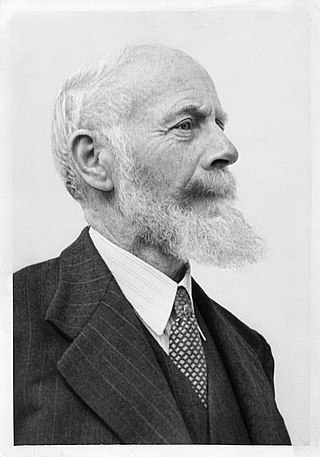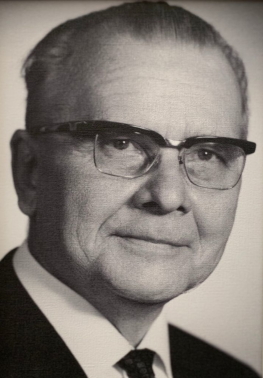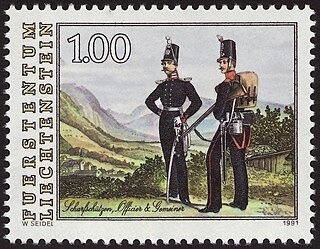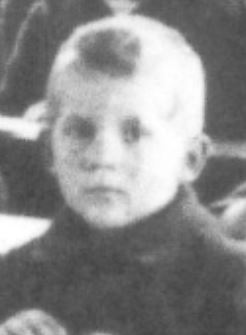
Political identity came to the territory now occupied by the Principality of Liechtenstein in 814, with the formation of the subcountry of Lower Rhætia. Liechtenstein's borders have remained unchanged since 1434, when the Rhine established the border between the Holy Roman Empire and the Swiss cantons.
Same-sex marriage will soon be legal in Liechtenstein. In November 2022, the Landtag passed a motion calling on the government to introduce a bill legalizing same-sex marriage, with broad support from across the political spectrum. A bill legalizing same-sex marriage was introduced in February 2024 and passed its final reading in the Landtag on 16 May 2024 by a 24–1 vote. It received royal assent from Prince Alois on 9 July 2024, and is scheduled to enter into force on 1 January 2025. Polling suggests that a majority of Liechtensteiners support the legal recognition of same-sex marriage.
Liechtensteiner Vaterland is the largest daily newspaper in Liechtenstein. Published by Vaduzer Medienhaus AG, it is the official newspaper of the Patriotic Union party.

Gustav Schädler was a teacher and politician from Liechtenstein who served as Prime Minister of Liechtenstein from 1922 to 1928.

Josef Ospelt was a political figure from Liechtenstein who served as the first Prime Minister of Liechtenstein from 1921 to 1922.
The Christian-Social People's Party, often shortened to People's Party, was a social liberal political party in Liechtenstein. Founded in 1918, the Christian-Social People's Party and the Progressive Citizens' Party (FBP) were the first political parties in Liechtenstein.

Daniel Risch is a politician from Liechtenstein who has served as the Prime Minister of Liechtenstein since 2021. He was previously Deputy Prime Minister 2017 to 2021, under the government of Adrian Hasler.

Otto Schaedler was a physician and political figure from Liechtenstein who served in the Landtag of Liechtenstein and was one of the founders of the Patriotic Union party.

Alois Vogt was an advocate and political figure from Liechtenstein who served as the Deputy Prime Minister of Liechtenstein from 1938 to 1945.

Wilhelm Beck was an advocate and political figure from Liechtenstein who was one of the founders of the Christian-Social People's Party and served as the President of the Landtag of Liechtenstein from 1922 to 1927.
Arthur Brunhart is a historian and former politician from Liechtenstein who served as the President of the Landtag of Liechtenstein from 2009 to 2013.

Prince Eduard of Liechtenstein was the son of Prince Alois of Liechtenstein and Countess Anna of Degenfeld-Schonburg. He was a civil servant in Austria and a prominent diplomat in Liechtenstein.
The November 1918 Liechtenstein putsch, also known as the Beck putsch was a de facto coup d'état by the leaders of the Christian-Social People's Party against the government of Governor of Liechtenstein, Leopold Freiherr von Imhof. The coup forced Imhof's government to resign and established a Provisional Executive Committee in his place until 7 December.

Josef Johann Ludwig, more commonly known as Ludwig Grass, was a Liechtensteiner physician and politician.

Karl Freiherr Haus von Hausen was an Austrian noble and civil servant who served as the Governor of Liechtenstein from 1861 to 1884. Hausen was born into an Austrian noble family of Franconian origins, which was amalgamated under the title 'von Hausen' by Francis II in 1797.

The military history of Liechtenstein originates back to its predecessors in the County of Vaduz and Lordship of Schellenberg. Liechtenstein disbanded its army in 1868, and has had no standing army since. However, under the constitution of Liechtenstein citizens are still obligated to defend the country in the event of an external threat, and the army may be reformed if deemed necessary.
Rupert Quaderer was a politician and journalist from Liechtenstein.
Rupert Quaderer is a historian from Liechtenstein and former research officer at the Liechtenstein Institute for history. His works have included numerous publications on the political and diplomatic history of Liechtenstein.

Alfred Quaderer was a Liechtenstein citizen who was executed by Switzerland in 1944 for spying on behalf of Nazi Germany.












